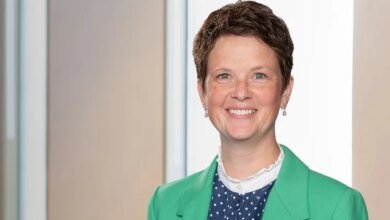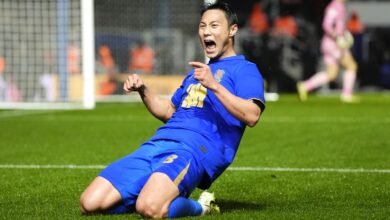Kelly’s Health Journey: A Story of Determination and the Importance of Advocacy

For Kelly, a Special Olympics Wisconsin athlete from West Allis, sports have always been a central part of life. Since age 8, she has competed in soccer, softball, bowling and basketball, earning medals, friendships, and memories along the way. But in 2019, everything changed when a mysterious injury stopped her in her tracks and launched a health care journey that would test her resilience and her family’s determination.
During back-to-back sports seasons, Kelly suffered falls that left her in excruciating pain. What began as a sore hip escalated to the point where she struggled to walk and was forced to sit out the sports she loved most. Despite numerous doctor visits, physical therapy sessions and tests, answers remained elusive for months.
“We were getting frustrated because nobody was physically listening to what we were saying,” recalls her mom, Denise. “They kept saying, ‘It’ll heal, it’ll be fine,’ but it wasn’t.”
Denise and her husband refused to give up, becoming tireless advocates for Kelly, tracking every appointment, asking tough questions and doing their own research.
Nearly six months later, an MRI finally revealed a diagnosis: pubic symphysis dysfunction. The pubic symphysis is a small joint located between the hip bones, and the injury can be debilitating. The family finally knew the problem, but an effective treatment still proved difficult to find. Kelly endured more pain, more therapy and countless trial-and-error solutions that offered no relief.
“Basically they said that she has to just avoid all contact sports. She has to let it heal by itself and we’re like going, you got to be kidding,” Denise said about the initial medical advice.
It wasn’t until Denise suggested chiropractic care, an idea initially brushed aside by medical professionals, that a breakthrough finally came.
“I said, ‘Let’s go to a chiropractor.’ And we went to a chiropractor at Froedtert hospital in Milwaukee. When we walked in there, we told him our story and he just said, ‘I know what you’re talking about. I’ve treated this before,’” Denise shared.
The chiropractor discovered Kelly’s body was out of alignment. Through a series of adjustments combined with physical therapy, Kelly slowly began to heal.
“It was like a miracle,” Denise says. “The first session that she had when we first met him, he did a little tweak to her and she walked out and she said, ‘Oh, I feel something, you know, different.’”
While Kelly still can’t participate in contact sports, she can walk comfortably and without pain and has taken up bocce ball to fill the void.
Their journey highlights a critical truth: Individuals with intellectual disabilities and their families need to be strong advocates for their own health. Medical systems do not always see the whole person or listen carefully enough.
“We weren’t giving up,” Denise affirmed. “We knew something was wrong, and we kept fighting for her.”
Special Olympics Wisconsin’s Healthy Athletes Program
That’s why Special Olympics Wisconsin’s Healthy Athletes program is so vital. Healthy Athletes, made possible by the Golisano Foundation in collaboration with the U.S. Centers for Disease Control and Prevention, provides free health screenings to athletes in key areas such as vision, hearing, dental care, foot health, physical fitness and emotional well-being — services that many individuals with intellectual disabilities might otherwise not receive. At the 2025 Summer Games alone, more than 500 free screenings were provided in a fun, supportive and stigma-free environment where athletes can feel comfortable asking questions about their health.
“Health equity for people with intellectual disabilities has come a long way, but we still have a long way to go”, said Brittany Hoegh, Senior Director of Health Programs for Special Olympics Wisconsin. “Our Inclusive Health Trainings for medical students and professionals give them a better understanding of the unique needs of patients with intellectual disabilities, and these trainings help create a more inclusive and responsive health care environment.”
For families like Kelly’s, Healthy Athlete screenings can be the first step in uncovering hidden health issues. Just as importantly, they empower athletes and families to speak up, seek second opinions and take charge of their care.
“Athletes and families have to be their own voice sometimes,” said Denise. “Don’t give up. Keep asking questions.”
Today, Kelly is back doing what she loves including playing bocce ball, coaching alongside her dad, creating art and inspiring others with her determination.
“Special Olympics is important to me because it helps me help others, and I get to meet people and have fun,” Kelly says with a smile.
Through programs like Healthy Athletes and Inclusive Health, Special Olympics Wisconsin continues to promote not just sports, but true wellness, confidence and inclusion, on and off the field.
Source link





